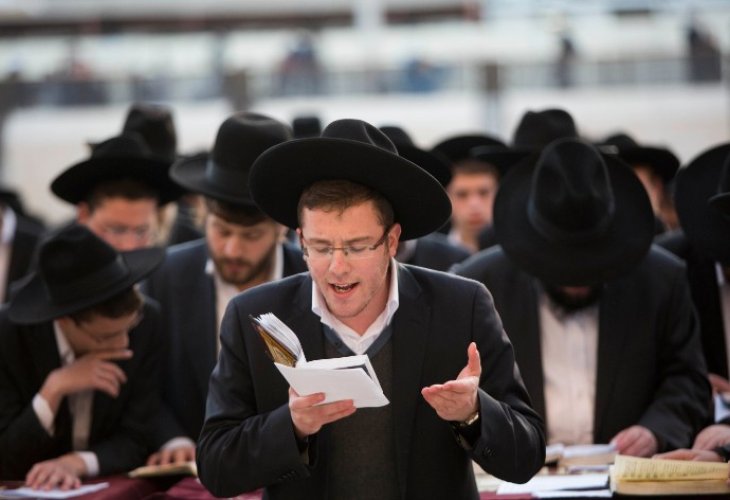In the teachings of our Sages, the simple act of walking to the synagogue carries extraordinary spiritual weight. The Talmud teaches that a person receives a unique reward for each step. Every step counts. Quite literally. The farther he walks, the greater the reward.
But arriving at the synagogue is only the beginning.
When a person enters the synagogue and studies even a single Mishnah or a halacha (Jewish law) before praying, they are said to merit an encounter with the Divine Presence. This powerful connection comes not only from study or prayer but from the synthesis of both—the act of preparing the soul before turning to Hashem.
The impact of this regular habit doesn’t stop with the individual. Judaism teaches that when someone models a good trait or mitzvah, they don’t just inspire others—they are rewarded for all the positive acts they set in motion. The Chofetz Chaim writes that someone who makes it their practice to go to synagogue to pray each day becomes a living example. Friends, neighbors, and family begin to follow their lead, and the original person is rewarded not just for their own prayers but for the prayers of those they inspired.
This dedication to synagogue life even brings longevity. In Tractate Berachot, the Sages recount a story where Rabbi Yochanan was surprised to hear that there were elderly Jews in Babylon—until he learned that they came early and stayed late at the synagogue. That, he said, was the secret to their long lives.
Beyond this, the act of rising early in the day to go and study Torah is also rewarded both in this world and the next. The dividends of this practice can be felt immediately, but the principle—so to speak—remains untouched for the World to Come.
When is the best time to pray? The Sages teach: when the community prays is a time of favor. Hashem does not turn away from the collective prayer of a congregation. A verse in Job underscores this truth: "Behold, God is mighty and does not despise the prayer of many." Individual prayer, by contrast, is subject to close scrutiny. The Chofetz Chaim notes that in our distracted generation, it's exceedingly difficult to pray even one full prayer with proper concentration. Praying with the congregation helps shield us from that struggle and lifts our words higher than we could on our own.
The Chofetz Chaim, in Shemirat HaLashon, explains yet another reason why communal prayer is so vital. When praying with others, one has the opportunity to respond to Barchu, Kedushah, and Amen Yehei Shmei Rabba—each a powerful act on its own. These aren’t mere responses; they’re spiritual milestones. Barchu crowns Hashem, Kedushah fulfills the mitzvah of sanctifying Hashem’s name among the people, and Amen Yehei Shmei Rabba is so potent that it can erase a person’s sins—even those stemming from doubt or heresy—if recited with full intent.
The numbers are staggering. The Chofetz Chaim calculates that a single day of communal prayer offers at least 38 opportunities to answer Amen, eight chances to say Amen Yehei Shmei Rabba, 16 more Amens during Kaddish, and multiple Kedushas and Barchus. And that’s just one day. Multiply that over a week, a month, a year—and the spiritual reward becomes immeasurable.
Finally, there’s an even greater, more personal reward: the transmission of values. A child who sees his father cherish prayer and head to synagogue regularly will absorb that love and reverence for Hashem. Through example, the father plants seeds of faith in the hearts of his children—seeds that will grow into their own connection with mitzvot and avodat Hashem (Divine service).
The message is clear: attending synagogue is far more than a personal obligation. It's a daily opportunity to connect with Hashem, inspire others, build enduring merit, and pass on a legacy of faith. All it takes is one step—and then another.


